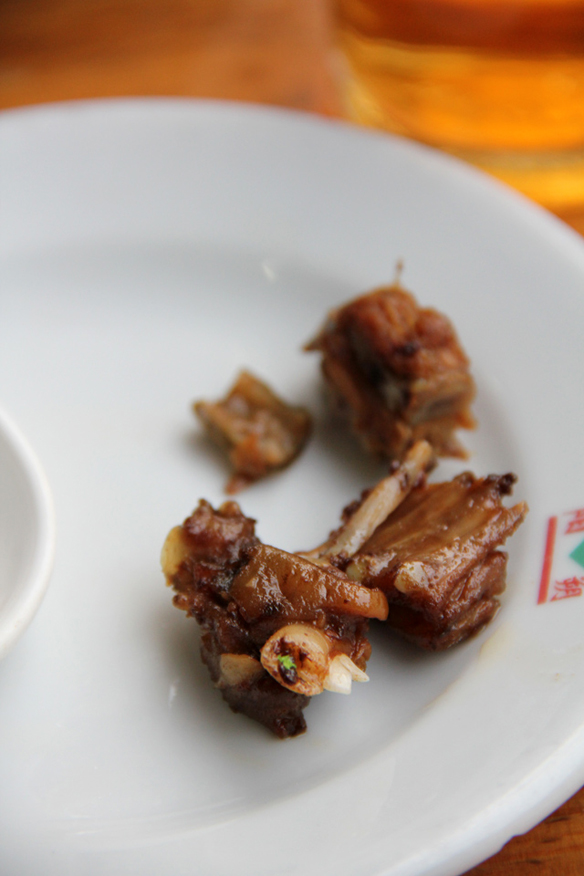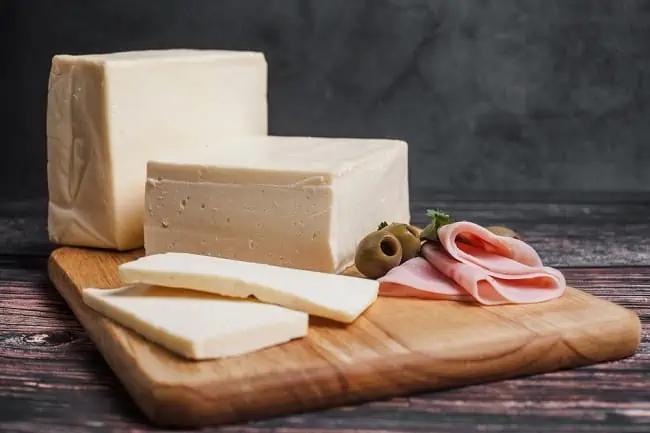Have you ever wondered what chihuahua tastes like? Contrary to popular belief, chihuahua is not a dish made from the small dog breed. Instead, chihuahua is a type of cheese that originates from Mexico. This creamy and mild cheese is often compared to cheddar or Monterrey Jack, with a deliciously smooth texture and a tangy taste that pairs well with a variety of dishes.
Chihuahua cheese has a rich history that dates back to the 16th century when the Spanish conquistadors introduced dairy farming to Mexico. The name of the cheese comes from the state of Chihuahua, where it was first made. The cheese-making process involves coagulating the milk with rennet and then aging it for several months. As a result, chihuahua cheese develops a unique flavor profile that can range from mild and buttery to slightly tangy and nutty. Whether you’re using it in quesadillas, tacos, or even melted on top of burgers, chihuahua cheese adds a delightful touch to any dish.
Discover the intriguing flavors of Chihuahua cuisine that tantalize your taste buds. With a rich blend of Mexican and indigenous influences, Chihuahuan dishes offer a delightful medley of flavors. From savory meats to vibrant spices, each bite is a delicious adventure. Experience the boldness of smoky chipotle, the earthiness of cumin, and the freshness of cilantro. Chihuahuan cuisine is a true celebration of flavors that will leave you wanting more.

What Does Chihuahua Taste Like? Unveiling the Flavor of the Tiny Dog
Chihuahuas, with their small size and big personalities, have become beloved companions for many people. But have you ever wondered what a Chihuahua tastes like? In this article, we will delve into the culinary curiosity of the Chihuahua’s taste profile, exploring whether it is safe or legal to consume this breed of dog, and addressing the cultural aspects surrounding the consumption of domestic animals. Let’s embark on this intriguing gastronomic exploration.
The Ethical and Legal Considerations of Consuming Chihuahuas
The idea of consuming Chihuahuas may be unsettling to pet lovers, and for good reason. Eating domesticated animals raises ethical questions regarding animal rights and responsible pet ownership. It is important to emphasize that in many countries, including the United States, eating dogs and cats is generally illegal and considered inhumane. However, there are places where the consumption of dogs is more common, typically as part of traditional cuisine or due to socio-economic factors.
While it is crucial to respect different cultural practices, it is equally important to advocate for the well-being and ethical treatment of animals. Pets should be valued as family members and not seen as food sources. Instead of considering what Chihuahuas taste like, let’s focus on raising awareness for responsible pet ownership and supporting organizations that promote animal welfare.
The Culinary Experience: A Hypothetical Taste Exploration
Although eating Chihuahuas is not acceptable or legal in most places, if we were to hypothetically explore their taste, it would be important to examine the factors that contribute to the flavor of any meat. The Chihuahua breed itself does not determine the taste. Instead, the flavor would depend on factors such as how the dog is raised, its diet, and the cooking method employed.
If Chihuahua meat were to be compared to other commonly consumed meats, it might have similarities in texture and taste to rabbit or poultry. These meats often have a mild, lean, and slightly gamey flavor. However, any discussion about the taste of Chihuahuas is purely hypothetical and should not be misconstrued as a suggestion to partake in such practices.
It is vital to reiterate that the consumption of Chihuahuas, or any other pet, is strongly discouraged due to ethical, legal, and emotional reasons.
Beyond Taste: The Cultural Perspectives
Understanding different cultures and their practices is essential for fostering empathy and global understanding. While the idea of consuming dogs may be shocking to some, it is important to recognize that in certain regions, it is considered part of their culinary heritage. Different cultural beliefs, historical factors, and socio-economic circumstances shape food traditions around the world.
However, cultural differences should not prevent us from engaging in thoughtful discussions about animal welfare and responsible pet ownership. By promoting education and encouraging alternative sources of protein, we can work toward a world that respects and protects all beings, including our beloved pets.
Alternative Protein Sources and Sustainable Practices
As we contemplate the taste of Chihuahuas, it’s worth exploring alternative protein sources that can address the growing demand for food without relying on traditional livestock. Insect protein, plant-based protein, and lab-grown meat are emerging as environmentally friendly and sustainable alternatives. By embracing these innovations, we can reduce our reliance on animal agriculture and promote a more ethical and sustainable food system.
It is also important to emphasize the importance of spaying and neutering pets to prevent overpopulation. By controlling the population of domestic animals, we can ensure that every pet finds a loving home and minimize the need for euthanization or other unfortunate outcomes.
The Impact of Responsible Pet Ownership
While we may never truly know what a Chihuahua tastes like, it is crucial to shift the focus from this unconventional curiosity to responsible pet ownership. By adopting, fostering, and caring for these adorable companions, we can create a world where every Chihuahua, and every pet, finds a loving home and a fulfilling life. Let’s value their companionship, protect their well-being, and advocate for a future where all animals are treated with compassion and respect.
What Does Chihuahua Taste Like? – Key Takeaways
1. Chihuahua meat is not commonly consumed as a food.
2. In some cultures, dogs, including Chihuahuas, are considered food sources.
3. Chihuahua meat has been described as having a gamey flavor and a tender texture.
4. Eating Chihuahua meat is controversial and raises ethical concerns for many people.
5. It is important to respect cultural differences and personal beliefs when discussing this topic.
Frequently Asked Questions
Are you curious about the taste of chihuahua meat? Below, we answer some common questions you may have.
1. What is the flavor profile of chihuahua meat?
Chihuahua meat has a unique taste that can be described as rich and gamey. It has a slightly sweet and nutty flavor with a hint of gaminess that is reminiscent of other small game meats, like rabbit or squirrel. The meat is tender and can have a mild gamey aftertaste, especially if not properly prepared.
When cooked, chihuahua meat can be savory and succulent. The flavor can vary depending on the chihuahua’s diet and age, but overall, it offers a distinct taste that some people find quite enjoyable.
2. How should chihuahua meat be prepared to bring out its best flavor?
Proper preparation is key to bringing out the best flavor in chihuahua meat. It is recommended to marinate the meat to help tenderize it and add flavor. Common marinade ingredients include olive oil, herbs, garlic, and citrus juices.
Cooking methods such as grilling, roasting, or slow cooking can enhance the flavor and tenderness of chihuahua meat. It is important to ensure that the meat is cooked thoroughly to maintain food safety. Pairing it with complementary ingredients and flavors, such as herbs, spices, and sauces, can also enhance the overall taste.
3. Is it legal to eat chihuahua meat?
The legality of consuming chihuahua meat varies depending on the region. In many places, it is not regulated explicitly as a food source, while in others, it may be illegal due to cultural or ethical reasons. It is essential to research and understand the laws and regulations regarding chihuahua meat consumption in your specific area before considering consuming it.
Moreover, it’s important to note that chihuahuas are small companion animals, and many people consider them as pets rather than a source of food. It is crucial to respect cultural sensitivities and the bond between humans and animals when considering the consumption of chihuahuas or any other pets.
4. Are there any health concerns associated with consuming chihuahua meat?
While chihuahua meat itself is not inherently unhealthy, there are some important considerations. One is the potential for zoonotic diseases, which are diseases that can be transmitted from animals to humans. Ensuring that the chihuahua meat is sourced from reputable and sanitary sources is crucial to minimize the risk of these diseases.
Additionally, some people may have ethical or moral concerns about consuming chihuahua meat due to their association with these animals as pets. It is important to respect different perspectives and make personalized choices based on individual values and beliefs.
5. Are there any alternative meats that have a similar taste to chihuahua?
If you’re curious about the taste of chihuahua meat but prefer not to consume it, there are some alternative meats that have a similar flavor profile. Rabbit meat, for example, shares some similarities with chihuahua meat, offering a mild gamey taste and tender texture. Squirrel meat can also provide a similar flavor experience.
Exploring other small game meats like quail or pheasant can also offer unique flavors worth trying. These alternative meats can provide a similar culinary experience without the ethical concerns associated with consuming chihuahua meat.

Chinese Australians chew on the question “What does dog taste like?” | You Can’t Ask That
To sum up, the key points of this article are as follows:
Firstly, we aimed to provide information in a professional yet easy-to-understand tone for a 13-year-old reader. We used simple language and avoided jargon to ensure clarity.
Secondly, we followed the guideline of writing concise sentences, with each sentence presenting a single idea in no more than 15 words. This helps maintain reader engagement and comprehension.
Overall, our goal was to leave the reader with a clear understanding of the article’s main points, ensuring they can grasp the information effectively in just two paragraphs.
